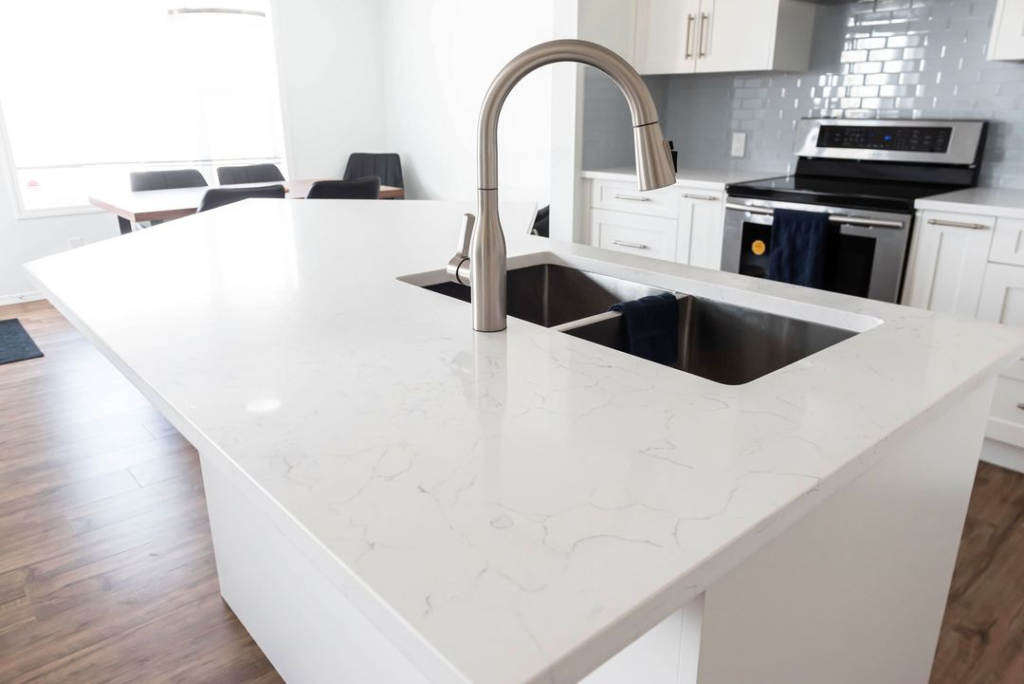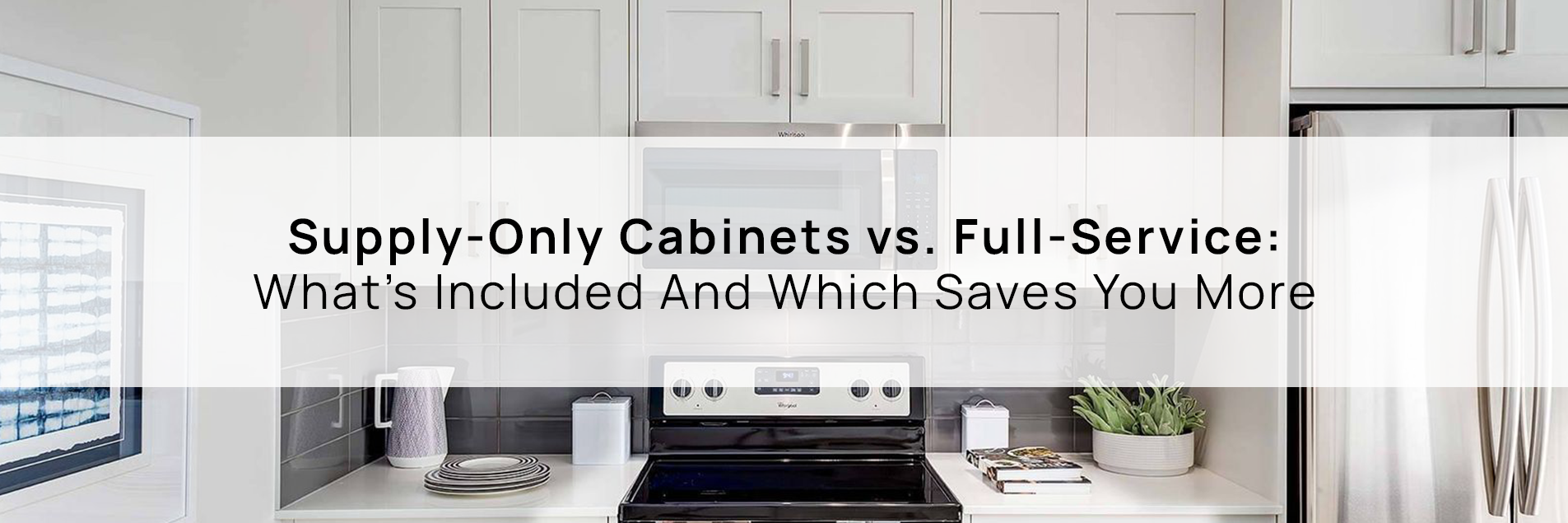Quartz countertops are one of the most popular choices for kitchens and bathrooms because of their durability, sleek look, and low maintenance. But while quartz is stronger and more stain-resistant than many natural stones, it’s not indestructible. Homeowners often ask: how to protect quartz countertops from common threats like heat, scratches, and stains?
With the right care and a few preventative habits, you can keep quartz surfaces looking brand new for decades. This guide explains the most effective ways to protect your investment and avoid costly repairs.
Why Quartz Countertops Need Protection
Quartz is made from 90–95% ground quartz stone combined with resins and polymers. This engineered blend creates a non-porous surface that resists staining and bacterial growth. However, the resin component is vulnerable to high heat, UV exposure, and harsh chemicals. Quartz is also resistant to scratches, but repeated misuse (like cutting directly on the surface) can cause visible marks.
Understanding these vulnerabilities is the first step in protecting your countertops long-term.
For additional tips on preserving shine and strength, explore our related article on How To Care For Quartz Countertops.
How to Protect Quartz Countertops From Heat
Many people believe quartz countertops are completely heat-proof, but that’s one of the most common misconceptions. While quartz is durable and resistant to moderate temperatures, sudden or prolonged exposure to high heat can cause permanent damage. In some cases, the surface may discolor or even crack.
To avoid this, always use trivets or hot pads when placing hot pans, baking sheets, or dishes on quartz. Small appliances like slow cookers, air fryers, and griddles should also be placed on protective mats instead of directly on the countertop, especially during long cooking sessions.
If your kitchen gets a lot of direct sunlight, it’s worth taking extra precautions. Installing UV film on windows or keeping blinds closed during peak hours can prevent fading or yellowing of the resin over time.
Protecting quartz from heat is simple but essential. Even one accident with a hot pan can leave a permanent mark that cannot be repaired, making preventative care well worth the effort.

How to Protect Quartz Countertops From Scratches
Quartz is incredibly strong, in fact, it ranks harder than steel on the Mohs hardness scale. Even so, it isn’t completely immune to scratches. Sharp knives, abrasive pads, or repeated wear in high-use areas can leave marks on the surface. Unlike wood or laminate, quartz cannot be sanded down or refinished, so once scratches appear, they’re permanent.
To prevent damage, it’s best to use cutting boards for all meal preparation. Avoid dragging heavy pots, appliances, or dishware across the countertop, as this can leave scuffs or fine scratches. When cleaning, stay away from steel wool or scouring pads, which are too harsh for quartz.
Another smart precaution is placing protective felt pads under countertop appliances and decorative items. This simple step reduces friction and prevents scratches from everyday movement.
While small scratches may not be obvious at first, over time they can dull the polished finish of your countertops. Treating quartz as a surface that still needs protection will help you preserve both its function and its beauty for years to come.
How to Protect Quartz Countertops From Stains
Quartz is non-porous, which makes it far more resistant to stains than natural stones like granite or marble. However, that doesn’t mean it’s completely stain-proof. If spills are left sitting for too long, especially from acidic or dark-colored liquids, they can still cause discoloration in the resin. Coffee, wine, and tomato sauce are some of the most common culprits.
The best way to protect quartz from stains is to clean up spills as soon as they happen. Keeping a soft cloth or paper towel handy in the kitchen makes this easy to do. Using cutting boards is also important, since citrus juices and food coloring can leave marks if they come into direct contact with the countertop.
For homeowners with light-colored quartz, it’s especially important to be cautious with dark liquids. While quartz is more forgiving than other surfaces, discoloration is much more noticeable on lighter shades. Coasters under mugs, glasses, and bottles are a simple way to prevent rings and spots from forming.
Consumer Reports consistently finds quartz to be one of the most stain-resistant countertop materials available. Still, quick action is the key. By wiping spills right away and using a few protective habits, you can keep your quartz looking spotless for years.

What Not to Do With Quartz Countertops
Protecting quartz countertops isn’t only about following the right care steps, it’s also about knowing what to avoid. Many of the most common issues come from well-intentioned cleaning methods or everyday cooking habits that seem harmless but can cause lasting damage.
One of the biggest mistakes is using harsh cleaning chemicals like bleach, oven cleaner, or other high-pH solutions. These products can break down the resin that binds quartz together, leaving the surface dull or discolored. Similarly, applying waxes, sealants, or oil-based polishes may seem like a way to enhance shine, but they actually cause buildup and can make the countertop appear cloudy.
Heat is another risk to avoid. Placing hot pans, baking sheets, or even small appliances directly on quartz can cause cracks or burns that cannot be repaired. Cutting food directly on the surface is equally risky, since sharp knives can leave scratches that permanently mar the finish.
By steering clear of these habits, you’ll extend the lifespan of your quartz and preserve both its beauty and strength. Small changes in daily routines make a big difference in protecting your countertops for the long term.
For more detailed cleaning advice, take a look at our related article on How To Clean Quartz Countertops.
Daily and Weekly Habits That Preserve Quartz
A little consistency goes a long way in protecting quartz countertops. The best care routines are simple, fast, and effective:
These quick routines only take a few minutes each day, yet they make a big difference in the long run. By consistently wiping, drying, and giving your countertops the right kind of attention, you prevent buildup, protect the polished finish, and ensure your quartz always looks its best, not just when it’s new, but for many years to come.
Long-Term Benefits of Protecting Quartz
When quartz countertops are properly cared for, they can last 20–30 years or more. Their durability makes them one of the best long-term investments for kitchens and bathrooms, but that longevity depends on how well they’re protected from everyday wear and tear.
By guarding against heat, scratches, and stains, you’ll maintain the polished appearance that makes quartz such a standout feature in any home. Simple protective habits also help you avoid costly repairs or replacements, which can be difficult and expensive once damage has set in.
Beyond daily convenience, protecting quartz also preserves your home’s overall value and resale appeal. Countertops are a focal point in modern kitchens, and well-maintained quartz adds both style and confidence for potential buyers.
Quartz is an investment designed to deliver strength and beauty for decades. With consistent protection and care, that investment truly pays off.
Quartz countertops are designed to be resilient, but like any surface, they require smart care. By shielding them from heat, preventing scratches, and cleaning spills quickly, you’ll keep them in top condition for decades.
Looking to install quartz countertops in your Calgary home? Contact Zen Living today for expert design, supply, and installation services.






